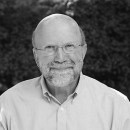JOHN ROSENBERG
Interim Campus Pastor
rosenbjp@plu.edu
One of the draft recommendations in the recently completed Campus Ministry Review is devoted to the weekday chapel schedule. The review team recommended that the Campus Pastor be responsible for planning and leadership for Wednesday chapel opportunities while maintaining the scheduled “chapel break” periods on Mondays and Fridays.
This naturally raises the question of what might happen during the Monday and Friday “chapel time” slots from 10:30-11:00 a.m. when there is no formal “chapel” scheduled. I’ve been mulling this over and talking with interested students, faculty, administrators and staff for the past few weeks. Here are a few thoughts I’m sharing in the interest of continuing the conversation.
We’ve already made several significant changes. The name change from “Chapel” to Morning Prayer is an effort to reframe and rename a time and a program that’s accumulated a good deal of baggage over the years. We wanted to put some distance between the opportunity for weekly corporate prayer as a university community and a sense of guilt and obligation that was a byproduct of mandatory chapel attendance.
In order to do that, we’ve drawn on a long-standing tradition of daily prayer in the church, using a simplified Morning Prayer (Matins) liturgy. There are enough other places in the life of the university where attendance and performance are measured and recorded. Worship and especially prayer doesn’t need to be another one of them.
Everyone is invited to Wednesday Morning Prayer. But we operate out of the assumption that everyone here is an adult and needs to balance that opportunity with all the other opportunities, duties and obligations that are part of their daily lives. No obligation. No guilt. Morning Prayer is about grace, not law.
The second change has been location: from Lagerquist Concert Hall (which holds approximately 530 people) to Ness Family Chapel which holds between 50 and 60 if we squeeze in tight. Don’t get me wrong, Lagerquist Hall is an amazing space. The acoustics are outstanding and it’s home to one of the world’s great pipe organs. But it’s space which lends itself more to performance than to corporate worship.
Given the attendance at chapel over the past few years, its size contributes to a sense of isolation rather than community. The Ness Chapel is designed for worship. If our regular attendance grows beyond 50, we’ll need to think about different space. But, as the saying goes, we’ll cross that bridge when we come to it.
This brings us back around to the question of what might happen during those Monday and Friday “chapel times.” I’ve started thinking of them as “30-minute Sabbaths.” You may remember that the Sabbath first appears in the opening chapters of Genesis when God decides that after six straight days of creating the cosmos, even He needs to take some time off for rest and rejuvenation.
At PLU, we often ask ourselves, “What will you do with your one wild and precious life?” That’s a big, important question. Here’s an admittedly smaller but still important one: “What will you do with the gift of a 30-minute sabbath three times a week?” Take a walk? Meditate? Practice yoga or tai-chi? Have coffee and conversation with a friend (including the Campus Pastor on Mondays)? Spend some quiet time in Ness Chapel?
There will undoubtedly be additional opportunities to engage a variety of spiritual practices during “chapel time” as Campus Ministry evolves during this time of transition. But for now, do yourself a favor and figure out a way to take advantage of the 30-minute Sabbath already built into the schedule every Monday, Wednesday and Friday. Remember, even God takes time off.

















